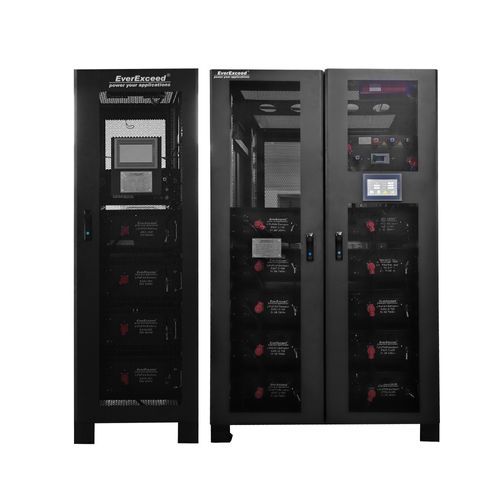
Get a Quote
What is a High Voltage Battery?
In the rapidly advancing field of renewable energy, high voltage batteries are becoming increasingly critical, particularly in solar energy systems. These batteries, often leveraging lithium battery technology, offer enhanced performance, efficiency, and storage capacity. But what exactly constitutes a high voltage battery? This blog will delve into the intricacies of solar battery voltage, the role of lithium battery technology, and why high voltage batteries are essential in modern energy solutions.
Understanding Solar Battery Voltage
Solar battery voltage refers to the electrical potential difference across the terminals of a battery used in solar energy systems. It is a crucial parameter that determines how much energy the battery can store and deliver. Solar batteries typically come in various voltage configurations, such as 12V, 24V, and 48V, each serving different applications.
- Low Voltage vs. High Voltage: In the context of solar energy storage, low voltage batteries typically operate below 100V, while high voltage batteries exceed this threshold, often reaching up to 600V or more. High voltage batteries are particularly advantageous for larger systems, as they reduce current flow, minimize energy loss, and improve overall system efficiency.
- Why Voltage Matters: The voltage of a solar battery impacts not just the storage capacity but also the efficiency and longevity of the entire solar energy system. High voltage batteries, in particular, are better suited for grid-tied systems and large-scale energy storage, where maximizing energy efficiency is paramount.
The Role of Lithium Battery Technology
Lithium battery technology has revolutionized the energy storage industry, offering significant advantages over traditional lead-acid batteries. These benefits are even more pronounced when it comes to high voltage batteries used in solar energy systems.
- Energy Density: Lithium batteries boast a higher energy density, meaning they can store more energy per unit of weight. This is particularly important for high voltage batteries, as it allows for greater energy storage without significantly increasing the size or weight of the battery.
- Longevity: One of the standout features of lithium battery technology is its longevity. Lithium batteries can endure thousands of charge cycles with minimal degradation, making them ideal for applications where long-term reliability is crucial. In high voltage configurations, this translates to a more durable and cost-effective solution over the battery's lifespan.
- Safety and Stability: Safety is a paramount concern in high voltage systems, and lithium batteries have proven to be safer than their lead-acid counterparts. Advanced management systems in lithium batteries help prevent overcharging, overheating, and short circuits, ensuring stable and reliable performance in high voltage applications.
What is a High Voltage Battery?
A high voltage battery is typically defined by its ability to operate at voltages above 100V. These batteries are essential in applications where large amounts of energy need to be stored and delivered efficiently, such as in solar energy systems, electric vehicles, and industrial applications.
- Design and Configuration: High voltage batteries are usually composed of several lithium cells connected in series to achieve the desired voltage. This configuration allows for a compact design with fewer components, which can significantly reduce the overall cost and complexity of the system.
Advantages of High Voltage Batteries:
- Improved Efficiency: High voltage batteries reduce the current required for energy transmission, leading to less energy loss and improved efficiency.
- Scalability: These batteries are easily scalable, making them ideal for both residential and commercial solar installations.
- Reduced Installation Costs: With fewer components and simplified wiring, high voltage systems can be more cost-effective to install and maintain.
Applications of High Voltage Batteries in Solar Energy Systems
High voltage batteries are increasingly being used in solar energy systems, where their unique characteristics offer distinct advantages.
- Grid-Tied Systems: In grid-tied solar energy systems, high voltage batteries are essential for storing excess energy generated during peak sunlight hours. This stored energy can then be used during periods of low sunlight or at night, ensuring a constant energy supply.
- Off-Grid Systems: For off-grid applications, high voltage batteries provide the necessary energy storage to power homes or businesses independently of the grid. The high energy density and long lifespan of lithium batteries make them particularly suitable for these scenarios.
- Commercial and Industrial Applications: High voltage batteries are also widely used in commercial and industrial solar installations, where large-scale energy storage is required. These batteries help reduce dependence on the grid, lower energy costs, and provide backup power during outages.
The Future of High Voltage Batteries
As the demand for renewable energy continues to grow, so too will the need for efficient and reliable energy storage solutions. High voltage batteries, driven by advancements in lithium battery technology, are poised to play a crucial role in this future.
- Innovation in Lithium-Ion Technology: The ongoing development of lithium-ion technology is expected to further enhance the performance of high voltage batteries. Innovations such as solid-state lithium batteries promise even higher energy densities, longer lifespans, and improved safety, making them ideal for high voltage applications.
- Integration with Smart Grids: High voltage batteries are increasingly being integrated into smart grid systems, where they help balance energy supply and demand, stabilize the grid, and enable the efficient use of renewable energy.
- Sustainability and Recycling: The sustainability of lithium batteries is also a growing concern, and efforts are being made to improve recycling processes and develop more eco-friendly battery materials. This will be crucial in ensuring that the widespread adoption of high voltage batteries is both economically and environmentally sustainable.
Conclusion
High voltage batteries are not just a technological advancement; they are a cornerstone of the future of energy storage, particularly within solar energy systems. With their capacity to store and deliver vast amounts of energy efficiently, and the numerous benefits of lithium battery technology, these batteries are crucial for both residential and commercial applications. They provide a reliable, scalable, and cost-effective solution that aligns perfectly with the growing global emphasis on renewable energy.
As you consider integrating high voltage batteries into your solar energy system, it's essential to choose a provider that not only understands the intricacies of this technology but also leads the industry in innovation and quality. EverExceed is at the forefront of the energy storage revolution, offering a range of high-performance batteries designed to meet the diverse needs of today’s energy-conscious consumers. With a strong commitment to sustainability, advanced technology, and unparalleled customer support, EverExceed is your trusted partner in building a cleaner, more efficient energy future.
By choosing EverExceed, you are not only investing in top-tier energy storage solutions but also in a sustainable and energy-efficient future. Explore EverExceed's offerings today and take the next step toward powering your world with high voltage batteries that deliver unmatched reliability and performance.


